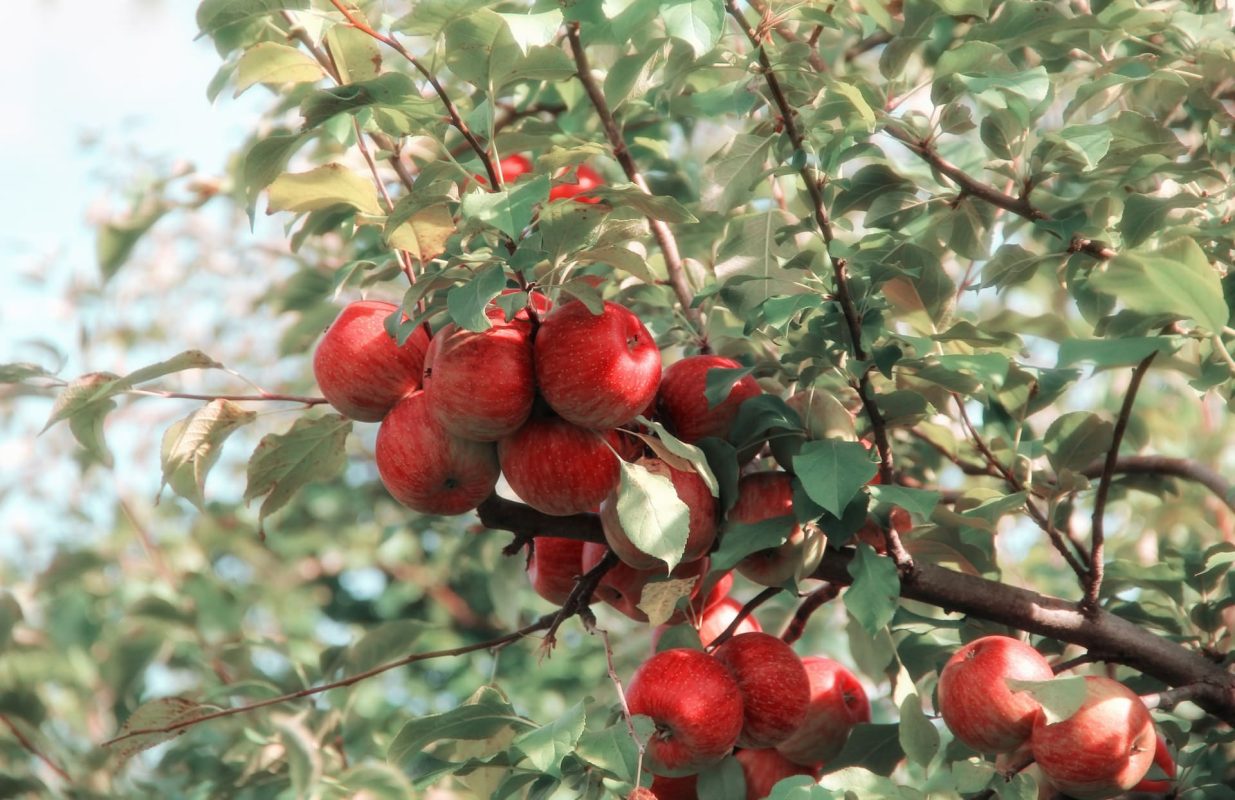YETRAC
Comprehensive Guide to Apple Tree Fertilization: Tips for Healthy Trees and Bountiful Harvests
Comprehensive Guide to Apple Tree Fertilization: Tips for Healthy Trees and Bountiful Harvests
Apple trees are beloved fruit-bearing trees that require proper fertilization to ensure optimal growth, fruit production, and overall tree health. In this comprehensive guide, we will explore the key steps and techniques for effectively fertilizing apple trees. From understanding nutrient requirements to selecting the right fertilizers and implementing strategic fertilization methods, you’ll gain valuable insights to maximize the health and productivity of your apple orchard.
Soil Analysis
Before fertilizing your apple trees, conduct a soil analysis to evaluate the nutrient content, pH level, and overall soil health. This analysis will help you identify any nutrient deficiencies or imbalances that need to be addressed through fertilization.
Macronutrients for Apple Trees
Apple trees require specific macronutrients for healthy growth and fruit development. The primary macronutrients are nitrogen (N), phosphorus (P), and potassium (K). Nitrogen supports vegetative growth, phosphorus promotes root development and flower formation, and potassium contributes to overall tree health and fruit quality. Choose fertilizers with the appropriate ratios of these macronutrients, such as a 10-10-10 or 14-7-7 formulation.
Timing of Fertilization
Timing is crucial when fertilizing apple trees. Apply a significant portion of the fertilizer in early spring before bud break to support the tree’s initial growth and development. Additional fertilizer applications may be required during key growth stages, such as after petal fall or during fruit enlargement, to meet the tree’s increasing nutrient demands.
Organic Matter and Compost
Incorporate organic matter, such as well-rotted compost or manure, into the soil around the base of the apple trees. Organic matter improves soil structure, nutrient retention, and water-holding capacity. Apply compost in early spring or during the fall to provide a slow release of nutrients and enhance overall soil fertility.
Balanced Fertilizers and Slow-Release Formulations
Consider using balanced fertilizers specifically formulated for fruit trees. These fertilizers provide a balanced mix of macronutrients and micronutrients essential for apple tree growth and fruit production. Slow-release fertilizers are also beneficial as they gradually release nutrients over an extended period, ensuring consistent nourishment for the trees.
Micronutrient Management
Apple trees may require additional micronutrients for optimal growth and fruit development. Key micronutrients include zinc, iron, manganese, and boron. Conduct a soil analysis to identify any micronutrient deficiencies and apply targeted fertilizers or foliar sprays to address specific nutrient needs.
Irrigation and Water Management
Proper irrigation is critical for apple tree health and nutrient uptake. Provide regular watering, especially during dry periods, to maintain adequate soil moisture levels. Implement irrigation systems that deliver water directly to the root zone and avoid wetting the foliage excessively to reduce the risk of fungal diseases.
Monitoring and Adjusting
Regularly monitor the health and growth of your apple trees throughout the growing season. Watch for signs of nutrient deficiencies, such as yellowing leaves or stunted growth. Adjust your fertilization program accordingly, either by increasing the application rates or adjusting the timing based on the specific needs of your trees.
Proper fertilization is key to ensuring the health and productivity of apple trees. By conducting a soil analysis, understanding nutrient requirements, selecting the right fertilizers, and implementing strategic fertilization methods, you can optimize the growth and fruit production of your apple orchard. Remember to consider macronutrients, incorporate organic matter and compost, use balanced fertilizers and slow-release formulations, manage micronutrients, practice proper irrigation and water management, and monitor your trees closely. By following these guidelines, you’ll be able to nurture healthy apple trees that yield abundant and high-quality fruit season after season.

